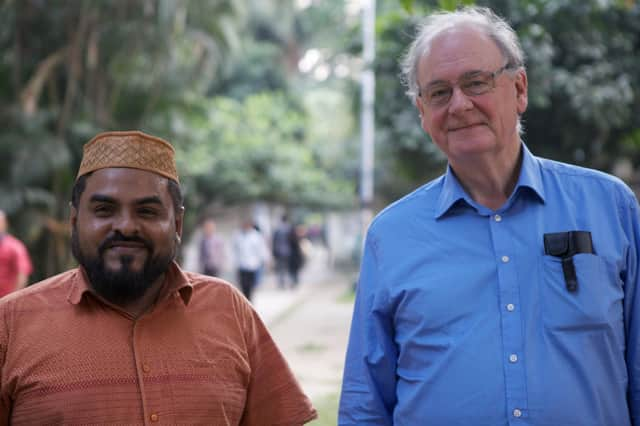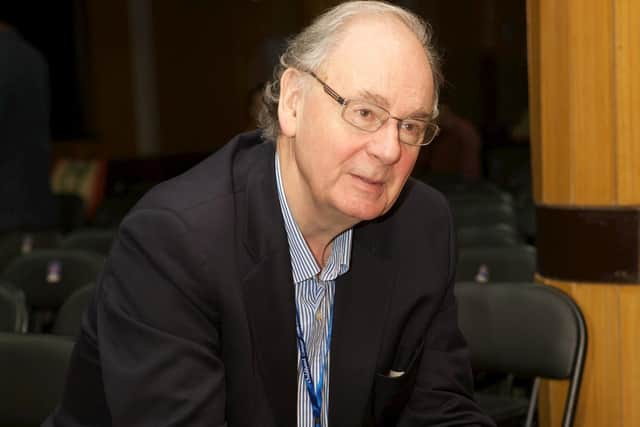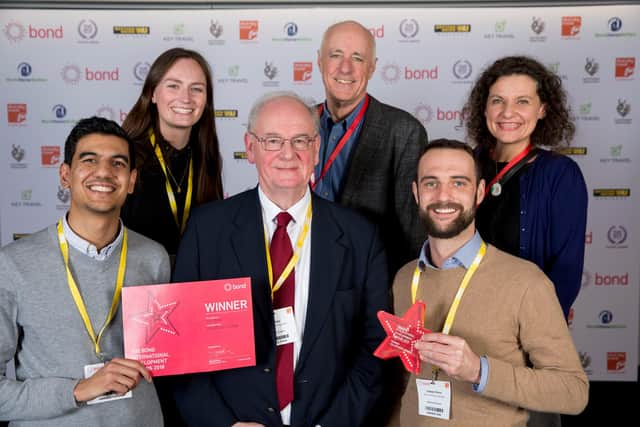Covid-19 threatens child cancer partnerships with low income countries, warns Edinburgh expert


Professor Tim Eden is a retired paediatric oncologist and haematologist, who was a paediatric oncology consultant at the Royal Hospital for Sick Children in Edinburgh for a decade.
In 2007 he helped found World Child Cancer, a charity which aims to close the gap between child cancer care in rich and poor countries.
Advertisement
Hide AdAdvertisement
Hide AdIn high income counties up to 80 per cent of children survive cancer, but in low income countries this can be as low as ten per cent, with many children not diagnosed or diagnosed too late due to a shortage of trained doctors and nurses.


As a leading figure in paediatric oncology, Professor Eden used his influence to recruit 11 hospitals and over 60 healthcare professionals from high income countries to create twinning partnerships with those in low income countries, and travel abroad to deliver training.
Together with Lorna Renner, a doctor from Ghana who had come to Edinburgh to specialise in paediatric oncology, Professor Eden arranged for the Edinburgh Royal Hospital for Sick Children to be partnered with the Korle Bu Hospital in 2010.
Under the partnership doctors, nurses and pharmacists travel from Edinburgh to Ghana to deliver training to medical staff, with World Child Cancer subsidising the cost of tests and medicine for the poorest families.
Professor Eden has now been given a Lifetime Achievement Award from the International Society of Paediatric Oncology (SIOP) for his dedication to children’s cancer care.


But the 73-year-old, who is still active in many advisory roles, warned that the Covid-19 pandemic threatens the progress made in closing the gap in child cancer care during his career.
Like most charities, World Child Cancer’s fundraising has severely suffered during the pandemic. The charity has reserves, Professor Eden said, but may struggle to keep up activity from next year.
Funding is also being diverted into Covid-19 prevention measures, as infection can close down cancer wards.
Advertisement
Hide AdAdvertisement
Hide AdThe risk is less to the children, Professor Eden said, but to their parents and staff members.
“In Ghana and Malawi for example, the children have not been the problem, but their parents often have,” he said.
"If the parents get it, or the staff, then there’s a problem.
“In Bangladesh they had to close down the children’s cancer ward for two weeks because several people on the staff had Covid-19. We have been spending over £100,000 around all the partnerships to keep people safe and protect them.”
Professor Eden added that the pandemic has created an additional obstacle to those in low income and especially rural areas, who may avoid seeking cancer treatment or diagnosis due to fear of infection.
"One of the problems in Malawi for example was that patients weren’t coming to the hospital from more remote areas because they were worried they might get Covid-19,” he said.
There has been one upside to the pandemic, as because World Child Cancer and other organisations have been forced into moving training and conferences online it makes them more accessible for medical staff from low-income countries.
"We still go out, but we’re now increasingly doing online teaching for nurses, and we really like that,” Professor Eden said.